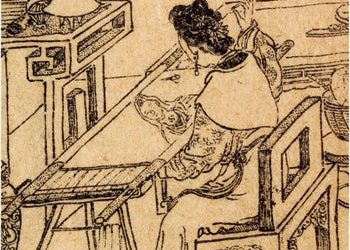“Professor, the Red Brigades have telephoned. They say they want to kill you.”
 In his recently published, Not Being God: A Collaborative Autobiography, Gianni Vattimo provides a series of vignettes looking back at his life as a philosopher, social activist, politician, and gay rights advocate.
In his recently published, Not Being God: A Collaborative Autobiography, Gianni Vattimo provides a series of vignettes looking back at his life as a philosopher, social activist, politician, and gay rights advocate.
Needless to say, one of the more dramatic chapters in Vattimo’s life was when he was threatened by the Italian terrorist group of the 1970s, The Red Brigades. Vattimo’s status as a left-wing faculty president paradoxically made him a target of the Red Brigades in the 1970s, causing him to flee Turin for his life.
The following is a description of those days:
Chapter 33: Death Threats
It was the period when the Brigate Rosse, the Red Brigades, were killing people at the rate of one per day. Someone would wake up in the morning and . . . bang. The mayor, Diego Novelli, and the president of the Piedmont region, Aldo Viglione, were doing nothing but attending funerals.
It was at Turin that the first trial of the BR was going to be “celebrated,” to use the curious Italian idiom: the historic nucleus of the BR, Curcio and Franceschini.
On November 16, 1977, they killed Carlo Casalegno.
On March 8, 1978, the trial started.
I was still president of the faculty of letters and philosophy.
On March 9, day two of the trial, I was presiding at a faculty council. At a certain point the secretary, Signora Gianonne, came in and said, “Professor, the Red Brigades have telephoned. They say they want to kill you.”
Naturally, it shakes you up. I left the council immediately (“Sorry, have to go”), went to the president’s office, and the first thing I did was phone home. They had called there too, and uttered the same threat. Gianpiero, like me, was half-dead with fright.
We were really concerned. I was known as a left-wing faculty president, and some of my friends who knew people who knew the Brigatisti told me, “Look, this is no joke. They have a list of those on the left who aren’t with them, and they plan to blow them away. Norberto Bobbio heads it, but you’re on it too.” Oh, okay.
The police told me, “We’ll put men outside your apartment, but you won’t notice anything.” Sure, how would I? The first thing the concierge said to me was “Look, there’s a car parked outside with four heavies inside . . . they’re either caramba (Carabinieri) or Brigatisti.”
In any case, we moved in the same day with Angela and Mario, in Via Vespucci. And immediately word arrives—from friends of friends again—that they plan to burn our apartment that night. Gianpiero, defying danger, went back home to get the cat. He said, “Never shall the Siamese puss be the only one to suffer in all this.”
At just this time Gianpiero had been invited to a festival of visual poetry at Verona. After spending a night at Angela’s, Gianpiero, Sergio, and I left for Verona. We stayed at a small hotel; we moved around with great circumspection, and the day after, we left for Tuscany. We took refuge with the rich sister of a Turinese friend of mine (Anna Cataldi, who was then married to Giorgio Falck), who had a beautiful country place at Bolgheri.
We got there and shut ourselves in. When supplies ran out, we were forced to go out and do a bit of shopping, but always with great caution.
After a week we were starting to say, “Well, we can’t stay here forever, let’s go back to Turin.”
We got everything organized, got the car ready, and just as we were about to leave, the radio informed us that Aldo Moro had been kidnapped. It was March 16, 1978.
We barricaded ourselves in the house once more. There were helicopters flying overhead all day. I said, “In a Diane with a Turin license plate, I don’t know what might happen.” At the time the Diane was a typically left-wing car, highly suspect.
We stayed a few more days, I don’t remember how many, then for good or ill we had to go back to Turin.
But I began getting around exclusively by taxi. From the apartment to the university. From the university to the apartment.
Above all, being the real target, I went to live for a while in the apartment of the mother of Marziano Guglielminetti, in Corso Duca degli Abruzzi. She was at the seaside, and the place was empty.
One afternoon a colonel of the Carabinieri whom I knew because he wanted to get his university degree (he was later put in charge of the mounted Carabinieri as punishment for having been found in the P2 files), came to speak with me. He had been in command of the platoon of Carabinieri that guarded the trial of the Brigatisti, but at this point the trial was finished. Who knows what’s on his mind, I thought. But it turned out he wanted me to let him o. some examinations. And he was asking me to supervise his thesis. I dug in my heels a bit, and told him, “Go ask Nicola Tranfaglia” (if Nicola found out he’d throw a punch at me, and he might not be entirely wrong). The colonel shot back, “But Tranfaglia is one of our suspects.” And indeed they had just searched Nicola’s place because he was rumored to have known the supposed mastermind of the BR, Gianbattista Lazagna. “Better not, certainly, in that case,” I said.
We started arguing, and our voices rose. Me: “You cops threw Giuseppe Pinelli out the window.” Him: “You people wrecked the secret services.” “But Pinelli. . . .” “But the secret services. . . .” Until the doorbell rang. I wasn’t expecting anyone, and the place must have looked empty. Who could it be? The colonel whispered to me to hide and went to open the door holding a revolver about a meter long. It was only a missionary looking for donations.
But that was the time of fear.




